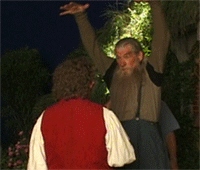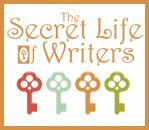Hello, Secret Life Friends!
Today we're going to talk about that one thing no one really talks about. A little thing called "submission." Yep. That major thing inbetween getting an agent and getting your book published. Yanno. NBD.
So here's the thing: technically you're not supposed to talk about being on submission with editors. Being that I'm in a position to share my experience, I thought I would take this opportunity while I can before (when) I sign with another agent and obligated to keep mum on the subject.
Here's the biggest question I get about submission: Why do you have to keep it a secret?
There are some agents that don't care whether you talk about sub or not. I'm not sure why they're okay with it and not others, but I suppose it just depends on who you signed with. The biggest reason most agents don't want you discussing it openly on Twitter and such is because 1) It's a business. What happens between you and your agent is professional, and not anything that should be shared with others outside of the agency. (Aside from close friends who know how to keep big secrets.) 2) It's like a game of poker. You don't show the other players your cards, right? Exactly. Editors check your Twitter feed just like an agent would before they sign you. They want to see what you're all about. If you expose the details of being on submission and all the rejections you're racking up, what makes you think an editor is going to be like: "Oh. No one's acquiring it. Now is my time to offer." Not so much.
You don't want to share too much that's going to sway an editor one way or another. Even if you're getting all kinds of requests. I know this information is super exciting and you want to SHOUT IT FROM THE ROOFTOPS. But guess what? Sometimes it's best to wait it out and keep the mystery. Leave them WANTING to know more as opposed to you laying it all out for them on some social network.
Now that that's said. Let's talk about the submission process. Ooh, the dreaded submission process. Look, sometimes people sell books within a week. It's totally possible. But let's not psyche yourself up for such a low blow. I admit. I totally did this. But the harsh reality is: Not everyone sells their first agent-ed manuscript in a week. Some people don't sell that first book at all.
Submission is an extremely long process that could take several months to a year. You might get an editor looking for you to R&R, and then you do and they pass anyway. Sometimes you don't sell a book until your third, or fourth, or even your tenth. That's just how it is.
Editors request material every day. It can take them a really long time to get to it, just like it took your agent eight weeks to offer. Sometimes you'll go weeks or months without a request or pass, and feel completely in the dark, not knowing where your book stands at all. It's like a black hole that has no end until that moment your agent calls and says: "We have an offer." or "I think it's time we put it away."
This happens. The one thing you have to remember to do is KEEP WRITING. Always. Always keep writing, you guys. You never know which book is going to be
the one. And if you stop and think that your first book on sub is going to be
the one, then you are going to feel even worse if it's not and you don't have another manuscript ready to sub. You always want to be a step ahead of the game. Always be prepared for the 'what if.' This is going to save you so much, I don't want to say heartache, but time. Because all that time you spend feeling bad about your writing, you could be finishing another manuscript and getting back out there!
If there's one thing I learned about submission, it's to never stop writing. Because one of these days, my friends, my persistence will make me a published author. And I won't look back and see my time as wasted, but as a great form of determination. Only you can make it happen. So don't give up. Never give up.






















